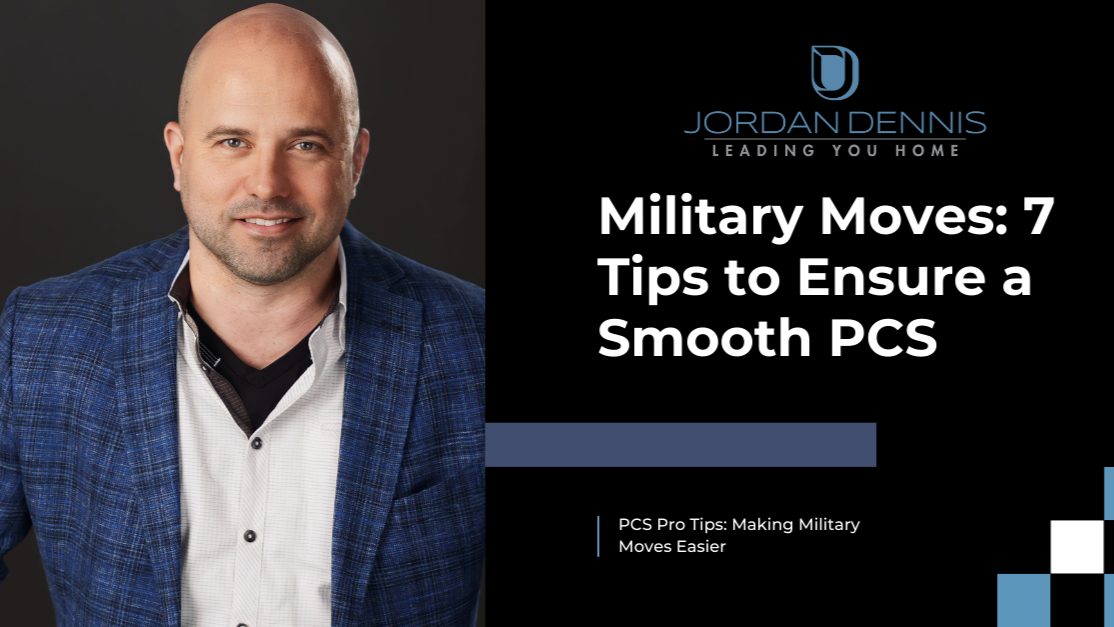Military Moves: 7 Tips to Ensure a Smooth PCS
For military families, a PCS (Permanent Change of Station) move represents both an exciting opportunity and a significant logistical challenge. Whether you’re a seasoned PCS veteran or navigating your first relocation, the key to a smooth move lies in thoughtful preparation and organization.
Here are seven in-depth tips to help your PCS go as smoothly as possible and maybe even make the experience enjoyable!
- Start Decluttering Early
Clearing out clutter may seem like a simple task, but it’s one of the most impactful things you can do to reduce PCS stress. Movers, especially during a TMO (Transportation Management Office) move, will pack everything they see—even trash or random papers lying around. For a DITY (Do-It-Yourself) move, decluttering becomes even more critical, as every item adds to the weight you’ll have to transport.
Set aside time to go through your home room by room, donating or discarding items you no longer use or love. For items that are sentimental but unnecessary, consider digital solutions like scanning papers or photographing keepsakes. Remember, lighter loads mean less hassle and potentially lower costs. Plus, starting early keeps you from rushing during the already hectic days right before the move.
- Know Your Weight Allowances and Plan Accordingly
Understanding weight allowances is one of the trickiest parts of a PCS move, especially for first-timers. If TMO is moving you, your household goods weight is capped, and exceeding it can result in costly penalties. For a DITY move, you’ll only be reimbursed for a certain weight, so estimating accurately is crucial.
Where to Start: Visit move.mil to check your official weight allowances based on your rank and family size. If you’ve moved before, the site will also show the weight of your previous moves, which can give you a helpful benchmark.
When estimating weight, keep in mind that furniture and appliances often weigh more than you think. For example, a sofa can weigh 200-300 pounds, and even small kitchen appliances add up. If you’re unsure, consider using an online weight calculator to get a rough idea.
- Organize a Binder for Your PCS Documents
PCS moves involve a lot of paperwork, and losing or misplacing documents can cause unnecessary delays and stress. Creating a dedicated PCS binder or folder will keep all your essential information in one place.
Your binder should include:
- Copies of your orders (make several copies).
- Receipts for gas, lodging, and food.
- Vehicle shipping documents.
- Passports, birth certificates, and Social Security cards (if not stored elsewhere).
- Notes on new housing, schools, or utilities.
Pro Tip: Use plastic sleeves to keep documents clean and sticky notes to flag important sections. On moving day, store the binder in your car or carry-on bag to prevent it from being accidentally packed by movers.
- Document Everything Before the Movers Arrive
One of the biggest sources of PCS stress is dealing with damaged or lost items. Protect yourself by thoroughly documenting your belongings before the movers arrive. Take photos or videos of every room, focusing on furniture, electronics, and other valuable or fragile items.
Ensure your documentation includes:
- Serial numbers for electronics.
- Close-up shots of pre-existing damage (or the lack thereof).
- Clear images of valuable or heirloom items.
If you’re using TMO, invest in moving insurance—it’s worth every penny. If anything arrives damaged, your visual proof will make filing a claim much smoother. Bonus tip: Take photos of your home, too, to document its condition when you move out.
- Prepare Critical Documents for Easy Access
When it comes to documents, redundancy is your best friend. Make multiple copies of everything you might need and store them in a secure, accessible place.
For CONUS (continental U.S.) moves, this might include:
- Birth certificates
- Social Security cards
- Marriage certificates
- Driver’s licenses and car titles
For OCONUS (outside the continental U.S.) moves, also include:
- Passports
- Pet vaccination and travel records
- Shipping documents for vehicles
Having these items at hand will save you from scrambling if they’re unexpectedly requested during your move. It’s also smart to scan and upload digital copies to a secure cloud storage service.
- Make Delivery Day a Breeze
The day your items arrive at your new home is exciting but often overwhelming. As the movers unload your boxes, they’ll call out numbers from your inventory list. Instead of trying to locate each number on a lengthy sheet, write down the numbers as they call them out, then cross-check everything after the movers leave.
Here’s how to make delivery day smoother:
- Inspect all “damaged” items noted on the inventory sheet.
- Immediately check fragile or valuable items for damage.
- Ask the movers to unpack boxes—it’s their job, and it can save you hours of effort.
By staying organized and addressing any issues right away, you’ll set yourself up for a more seamless unpacking process.
- Embrace Positivity Amid the Chaos
PCS moves are inherently stressful, but maintaining a positive mindset can make all the difference. Think of your move as an adventure: a chance to explore a new state or country, meet new people, and create new memories.
If possible, plan small moments of joy during the transition. Take scenic detours on your drive, stop at interesting landmarks, or try local cuisine at your new destination. Every PCS comes with its challenges, but it also brings opportunities for growth, discovery, and connection.
Cheers to New Beginnings!
Every PCS move is a fresh chapter in your military journey. With careful planning and the right perspective, it can be more than just a logistical challenge—it can be a memorable experience.
If you found these tips helpful, let’s stay connected!


 Facebook
Facebook
 X
X
 Pinterest
Pinterest
 Copy Link
Copy Link


